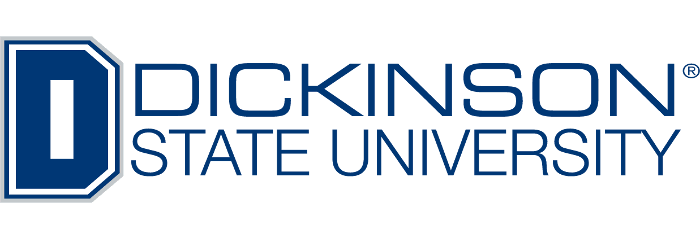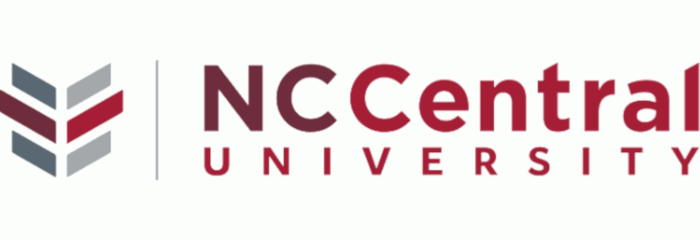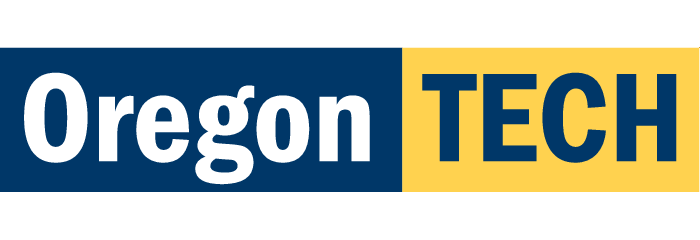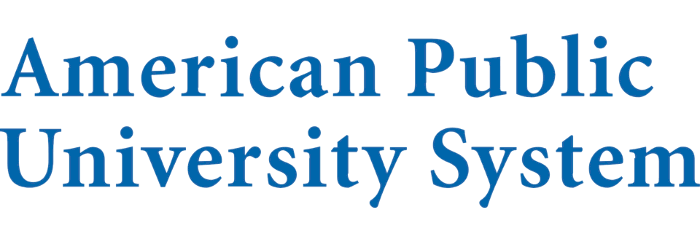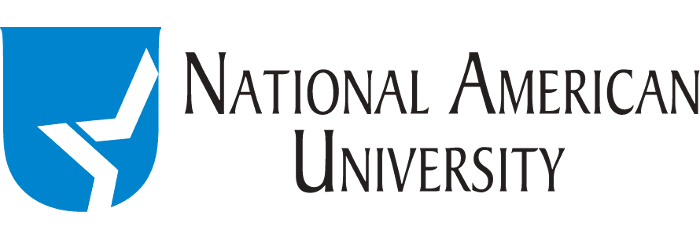
An affordable online bachelor's in information technology offers a flexible path to enter or advance in IT, covering key areas like programming, cybersecurity, and network management. These online programs prepare you for roles such as IT specialist or software developer.
Key Takeaways:
- Kennesaw State University is the cheapest online IT degree, with tuition at $4,770 and salary outcomes still above $83,000.
- Brigham Young University - Idaho has the best median earnings of $92,898 for graduates of its online Bachelor of Applied Science in Information Technology.
We find the most affordable online degrees through an in-depth tuition analysis, ensuring accuracy with a manual review. Each featured school holds institutional accreditation and offers fully online programs with clear, upfront costs. Learn more about our methodology.
2025 Most Affordable Online IT Degrees
Overview of Online Information Technology Degrees
Information technology blends theory with practical applications in the fields of computer science, business, and communication. Online IT degree programs are designed to give graduates a comprehensive understanding of the way information and data management systems work within industries.
Once you enroll in an online IT degree program, you can expect to learn a variety of technical skills. These include computer programming, network management, database administration, cybersecurity, and data analytics. Course assignments give you the opportunity to work on real-world projects, such as creating and managing databases, developing and implementing security strategies, programming software, and troubleshooting network issues.
In the process of completing these assignments, you'll start to develop creative problem-solving, analytical, and communication skills. You'll also be asked to collaborate with classmates so that you can learn to function effectively within multidisciplinary teams.
Online bachelor's degrees in IT typically require the completion of 120-124 credit hours. Full-time students often earn their degree in four or five years, while part-time students may need five or six years to finish. In addition to all of the general education and major-related courses, IT programs may also include an internship and a senior project before graduation.
Looking for more online IT programs? Discover additional options on our list of the best online IT degrees.
Common Courses
In general, the curriculum for an online IT bachelor's degree teaches you how to create systems and networks, develop faster processes, and improve software. Many courses are project-oriented labs, allowing you to gain hands-on experience with specific IT functions. These projects can later be used in your portfolio to demonstrate your skills and experience to prospective employers.
Some schools allow you to customize your degree by taking courses that focus on a specialization within IT, such as information security, systems administration, project management, or web development. Among the core courses often included in an online IT program are the following:
Introduction to Computer Systems
Often one of the first courses in a program, this class provides foundational knowledge of computer hardware and software. Students discover how they work together to process, store, and communicate information.
Data Structures and Algorithms
This course delves into the design, implementation, and analysis of data structures. Coursework also covers the algorithms associated with data structures.
Networks and Communications
In this course, students learn the fundamentals of network design and management, as well as data communication principles.
Introduction to Cybersecurity
This course covers the two core functions of cybersecurity: identifying cyber threats and breaches of security, and applying tools and techniques for protecting systems and data
Database Design and Management
Projects in this course give students the opportunity to design, implement, and manage databases by using various data management technologies.
Basic Software Development
Another project-based class, this course covers programming concepts, data structures, and design techniques for developing quality software.
Funding an Online IT Degree
Earning a bachelor's degree is a significant financial investment, but there are steps you can take to minimize your expenses. Consider some of the following cost-saving choices:
Earn your degree online. Colleges often charge in-state tuition rates or possibly slightly reduced tuition rates for distance education students, regardless of where they live. Our list above highlights the most affordable online programs, but there are many more accredited schools offering less expensive options. Also, as an online learner, you won't have to pay for room, board, and transportation.
Enroll in a public university. Data from the National Center for Education Statistics shows that the for an in-state student attending a public school in the 2021-22 school year was $9,596, as compared to $34,041 for attending a private school.
Attend community college first. Community colleges are generally less expensive, so you can complete many of your general education courses at a lower price before transferring to a four-year university to finish your degree. Additionally, most community colleges offer online courses.
Pick an economic place to live. Although online students don't have to pay for room and board, you'll still need to pay for housing, food, and other living expenses. As an online learner, however, you can choose to live someplace that's affordable.
Work while you attend school. You can use the income you earn from a full-time or part-time job to help pay for your college education. It may mean taking fewer courses each semester and needing a little additional time to finish your degree, but it's a trade-off that may be worth making.
Financial Aid
One of the most common ways many students reduce college expenses is by obtaining financial aid. Funding for financial aid comes from many sources, including the federal and state government and the schools themselves. There are also many organizations that provide private scholarships based on need, merit, or other criteria, such as your chosen major.
Grants and scholarships are the preferred forms of financial aid because they generally don't have to be repaid. However, if you don't qualify for enough grant or scholarship funding, you may need to take out a student loan. Keep in mind, however, that the interest on a federal or private student loan can add a significant amount to the total cost of your degree. Before accepting a student loan, use a student loan repayment calculator to calculate the full amount of the loan.
Online learners enrolled in accredited online degree programs are eligible for financial aid. Simply fill out and submit the Free Application for Federal Student Aid (FAFSA). Once your application has been reviewed, you'll be notified if you qualify for aid and, if so, how much aid you will receive from the various schools where you've submitted admissions applications.
Scholarships
Although an online degree can be a more affordable higher education option, it is still a significant financial investment, and prospective IT students may be interested in funding their higher education. Because of the importance of technology in our current and future economy, many organizations encourage students to study information technology by sponsoring private scholarships, a few of which are listed below.
: This scholarship awards $10,000 to students pursuing a degree in computer science or a related technical field. Applicants must demonstrate financial need and strong leadership skills.
: Palantir awards $7,000 to students who identify as women and are pursuing degrees in tech-related fields. Recipients also receive a paid trip to Palantir to attend a tech workshop.
: To encourage diversity in the tech field, Microsoft offers several different scholarships in varying amounts for students majoring in computer science and other STEM subjects.
: The AFCEA awards scholarships of $5,000 to students pursuing a degree in a range of STEM fields, including IT. The cybersecurity scholarship is open to U.S. citizens and lawful permanent residents enrolled in at least their second year of college.
(ISC)2 offers 20 awards annually, ranging $1,000-$5,000, to high school seniors or undergraduate students pursuing an online bachelor's degree related to cybersecurity or information assurance. Applicants must demonstrate financial need and have a minimum 3.3 GPA.
Curious to explore a similar online bachelor's degree? Check out our list of the best online information systems programs.
What Can You Do With An Online Information Technology Degree?
An online information technology degree can open the door to a wealth of career opportunities. Naturally, graduates are likely to find employment in the tech industry, but there are plenty of additional options in other industries, including finance, healthcare, manufacturing, and more. The BLS has identified many high-paying, in-demand career paths for IT students, including the following:
Computer Systems Analysts
Also called systems architects, evaluate an organization's computer systems and implement improvements that enhance functionality. They may also look for ways to improve procedures and training.
Information Security Analysts
play an essential role in protecting an organization's computer systems, networks, and data. They continuously monitor their systems for threats and security breaches, and they look for ways to minimize issues and install the appropriate solutions. Some students interested in this aspect of IT may be interested in earning a degree in cybersecurity.
Web Developers and Digital Designers
use their programming and user experience skills to develop the look and functionality of websites. While some may work directly for large organizations, most work for business service providers or as freelance consultants.
Certification and Further Education
Although an online degree in information technology will prepare you for a range of job opportunities, you may also want to train for specific positions by pursuing additional education. Both certification and an advanced degree may make you a more competitive job candidate, depending on your career goals.
Certification programs are fairly affordable and can often be completed in a year or two. Not only does certification demonstrate your commitment to professional development, it shows employers that you have current skills and expertise in a specific area, such as digital security or cloud computing. Microsoft, Cisco, and CompTIA are just a few of the organizations that offer certification in an array of IT topics.
You may also want to consider going to graduate school. Master's programs allow you to study an aspect of IT, such as project management or cybersecurity, in-depth. There are also MBA programs in information systems that combine IT courses with business management courses if you're hoping to land higher-level managerial positions in the future. If theoretical research and academia interest you, consider earning a Ph.D. in information technology.
Are you thinking about earning a master's degree in IT? Discover the possibilities on our lists of best master's programs in IT and most affordable master's degrees in IT.
FAQs About Online Information Technology Degrees
How Do I Choose An Online IT Degree?
As you're reviewing the many possible options for earning an IT degree online, you'll want to take several factors into consideration.
One of the most important qualities to look for in an online program is accreditation. Enrollment in an accredited program is required for you to qualify for financial aid, and it may be needed if you decide to transfer to another school or apply for graduate school. Other significant factors include the school's tuition rate and financial aid opportunities, as well as curriculum, specializations, faculty, and student services.
Is An Online IT Degree Cheaper Than In Person?
Overall, an online IT degree may be cheaper than an in-person degree, especially if you select one of the most affordable schools listed above. Many schools charge the same or possibly lower tuition rates for fully online learners. Additionally, earning a degree online eliminates college room and board fees and expenses related to commuting to and from school.
Do I Need A Bachelor's Degree In IT?
No, in today's work environment you do not necessarily need a bachelor's degree to land a job in IT. You may qualify for many entry-level positions with just a boot camp certificate, diploma, or associate degree. In fact, research shows that even the biggest employers in tech . However, a bachelor's degree can be a valuable long-term asset if you want to advance in your career, especially into management positions with higher salaries.
Can My Company Help Fund an IT Degree?
In the tech industry, many companies do not require job applicants to have a bachelor's degree for an entry-level IT position. Instead, they are willing to hire individuals with only a certificate or hands-on experience. Some of these employers may offer tuition reimbursement programs for employees who want to further their education in a related field. Check with your employer to see if the company is willing to help fund your IT bachelor's degree.
Is an Online IT Degree Worth The Cost?
Although an online IT degree requires a significant investment of time and money, pursuing a degree through one of these affordable options is likely to pay off in terms of better career opportunities and the potential for a higher lifetime income.
In the process of earning an IT degree, you'll develop the technical skills and broad base of knowledge employers are looking for. You'll also acquire valuable soft skills, such as problem-solving, critical thinking, and effective communication. Additionally, the flexibility of online learning may help you balance your studies with other personal and professional responsibilities.
Given all of the benefits of earning an affordable online degree in IT, it seems well worth the cost.
Student Reviews of Online Information Technology Programs
STAY AWAY!!! If your a VETERAN STAY FAR away, you are just a number nothing more or nothing less it's all about the MONEY at keiser university.... You have been warned
Review Date: 12/22/2013
Would Recommend: No
Helpful for Career: No
As a stay-at-home mother working to achieve a BA in Information Technology, flexibility was a top priority for me when looking to expand my skills for near future career exploration and UOPX delivers exactly that. The online platform is intuitive and easy to navigate, allowing me to balance my studies with parenting and household responsibilities. The staff and educators deliver helpful and useful real world applications that I know will help me with my future successes.
Review Date: 6/11/2025
Would Recommend: Yes
Helpful for Career: No
To offer a counterpoint to the 2 reviews here about a poor application/enrollment experience, I applied online and had multiple transcripts sent to (and received by) KSU with no problem, and I was able to track everything easily through KSU's online "Application Status Check" tool in what they call "OWL Express." So far everything about: getting my new-student requirements completed; seeing how my transfer credits were applied; registering for my first semester of classes; meeting with an academic... Read More
Review Date: 1/7/2022
Would Recommend: Yes
Helpful for Career: No
As a recent graduate of the University of Phoenix, I can confidently say that my experience was transformative. Absolutely! Patience is key when waiting for assignment grades. Instructors typically aim to have everything graded within the following week, based on when your assignments are due. Here's why:
1. Flexible Learning Environment:
The University of Phoenix offers online and hybrid programs, allowing students to balance education with work, family, and personal commitments. The flexibility was... Read More
2. Active Participation:
To succeed, engage actively! Start by doing all the readings a day before class. This sets the stage for meaningful discussions during the live sessions. Participate in forums, share insights, and learn from your peers.
3. Discussion Sections Matter:
The discussion sections are where ideas collide, perspectives broaden, and critical thinking thrives. Don't just skim through—dive deep, ask questions, and contribute thoughtfully. It's where you'll refine your understanding.
4. Assignments and Labs:
Knock out assignments and labs promptly. These practical exercises reinforce theoretical concepts. Apply what you've learned, seek feedback, and iterate. Consistency pays off.
5. Honors Graduation:
If you're aiming for honors, maintain a strong GPA. Seek out challenging projects, collaborate with professors, and excel in your coursework. Remember, it's not just about grades—it's about growth.
6. Overcoming Challenges:
Life happens. I faced my own struggles, including a mental breakdown. But I returned, determined. You can too! Seek support, use resources, and persevere. Your journey is unique, and resilience matters.
7. My Journey:
Like you, I had setbacks. I dropped out briefly but returned in 2023. Today, I'm graduating with a 3.59 GPA. It's proof that resilience and determination pay off. Stick with it, and don't give up on your dreams.
Remember, education is a marathon, not a sprint. The University of Phoenix provides the tools; your commitment fuels the journey.
Review Date: 7/9/2024
Would Recommend: Yes
Helpful for Career: No
Going back for my degree was made easy with PG. I was able to transfer my credits and pick up where I left off free of hassle. My classes were to follow without feeling overwhelmed by school and life. The faculty was amazing with helping me further my education. If I had to do it all over again, PG would be my school of choice every single time.
Review Date: 5/28/2024
Would Recommend: Yes
Helpful for Career: Yes
I am a online student that studies that has taken the pathways program. The cost per credit is cheap(Under $100 per credit) that I do not need financial aid. The online courses are must easier than my high school class(1991 grad). Now hearing this, this college is for students who know what they want and are willing to work with the advisors. The students must plan for their classes themselves and are responsible for their work. If you can not plan and do the work then do not apply. The tech classes... Read More
Review Date: 10/24/2022
Would Recommend: Yes
Helpful for Career: No
Let me first state that I am still currently enrolled in UOP online. With that being said, I am disgusted by the way this college runs its financial aid department. This is really the only issue that I have had since I have been enrolled in online courses. I have been going here for 2 years now and have had to take 4 (5 week) LOA's because of the incompetence of the financial aid office. If you would like to receive your financial aid 4 months after you are supposed to and enjoy filling out paperwork... Read More
Review Date: 8/14/2019
Would Recommend: No
Helpful for Career: No
I have enjoyed my time with ASU online. Very challenging as if I was in an actual class. The only thing I disliked is the financial department. Recently I had to do a medical withdrawal due to my wife being diagnosed with cancer. Tho I was approved for the medical withdrawal the finance department still wants me to pay for the entire class I withdrew from. A hold was put onto my account and can not register for any classes until it is paid off. I would understand if I withdrew without an actual good... Read More
Review Date: 11/13/2020
Would Recommend: No
Helpful for Career: No
When I started this school in 2019, it was called Ashford University. Then the University of Arizona brought out the school. I think that this school is good for individuals that has the drive to teach themselves, hold themselves accountable, and understand that they will have to do work outside of the classroom to really bridge the gap between college and being able to work in their desired field. In every class you will have to do discussions, replies, and a final which could be a test, project,... Read More
Review Date: 5/15/2022
Would Recommend: Yes
Helpful for Career: No
Love the experience and flexibility of online education. After 26 years of traveling the world and defending this country, I finally decided to do something that would make the future me proud. Being the first of my mothers 12 children to graduate college, is something I will never forget and will always remember. I did it for my Grandparents who are now looking down on me and smiling! I DID IT!!!! #GRANDPAANDGRANDMA
Review Date: 10/28/2022
Would Recommend: Yes
Helpful for Career: No
This school is what you make it. Overall, I had a great experience! The good: -Cheap. I’ve read about some people finishing their entire bachelors in one term… that’s a bachelors from an accredited program for 3500 dollars. -For IT, the fact that your classes are certifications is a double win. Certs can be 300+ each, and you get 3 tries in each one. -I personally really like the competency based approach. My attendance and participation don’t mean that I know how software programming works, but... Read More
Review Date: 3/9/2022
Would Recommend: Yes
Helpful for Career: No
I've had a good experience overall at PG. The professors seem to know what they're doing, and the I like how the seminars work in regard to scheduling. The only bad thing I have to say is there Career Services Department lacks the services that other colleges do. At my old school you would go to the career department and they would say something like "go to this company, they've hired out students in the past", or apply for these types of jobs. I've been in contact for a while now with Purdue Global... Read More
Review Date: 8/28/2018
Would Recommend: Yes
Helpful for Career: Yes
If you are looking to get a Bachelors degree in Information Technology, I would highly consider you to reconsider. At least reconsider as to what school your going to. I completed my bachelors in Information Technology here at UOP, but what I have learned is that it's useless. I walked away with a single cert, and nothing more which as you may already know, in the IT world. They care very heavy on certs. And you need at the very least the very basic certs such as A+. I got a bachelors in information... Read More
Review Date: 8/7/2022
Would Recommend: No
Helpful for Career: No
I'm not sure why I see employer reviews on here... it has nothing to do with the quality of the online experience. Notice how most of the reviews complain that after 2016 "there was too much work." Yes, the economy grew expontentially and things really took off for most businesses; including schools! I have been at SNHU for a while now. I'm a part-time student who works a full time job. I also have 3 children, 1 of which is attending UMASS Amherst. SNHU has been nothing short of AMAZING for me. Earlier... Read More
Review Date: 3/30/2020
Would Recommend: Yes
Helpful for Career: No
My experience so far with AIU is somewhat of a hate and love relationship. If all of the professors was like my student advisor, that this school would have been rated 5 out of 5 stars. I have had some great professors and I have had some worse ones. Last semester I was at the verge of quitting because I felt I was not learning anything and every time I reached out to the professors I get google it or youtube it or I have another job and so I don't expect them to respond when I need them to. I don't... Read More
Review Date: 3/13/2020
Would Recommend: No
Helpful for Career: No
I have attended Kaplan for almost two years and Purdue University Global for over a year and i am going to be blunt because the comments below are misleading. First off there are 10 week courses and there is alot of information that gets packed into each week, so yes you will do modules and write a 1000 word APA paper if not longer each week. Yes there is heavy reading as well what you would expect going to college. Yes this college is part of Purdue University, do your research. If you can not manage... Read More
Review Date: 6/1/2019
Would Recommend: Yes
Helpful for Career: Yes
Overall I'd say my learning experience at UoP was a positive one. Even though I was juggling between work and school, I managed to successfully graduate from my program. The only down side was the online classes weren't really student focused as you'd imagine. So you get all these information to absorb and all these assignments and tests to do at the same time. Good thing is there are tonnes of UoP study resources & assignment help services out there. One that I found most helpful was uop-assignments.com.... Read More
Review Date: 11/16/2021
Would Recommend: Yes
Helpful for Career: No
The school itself is pretty great. The counselors are absolutely amazing, the student finance department is nice, pretty much everyone you speak to on the phone attempts to try their hardest to help you out. Some aren’t as helpful as others, but they can always connect you to someone else that is. The courses are sweet, they take a bit of time to balance over a traditional work week, but shouldn’t be too bad if you can manage a few hours to dedicate it to school work. An awesome college for active... Read More
Review Date: 8/4/2021
Would Recommend: Yes
Helpful for Career: No
I recently graduated from Purdue University Global. The degree challenges you to research, learn then prove what you know. There is an emphasis on detail and following directions. The course work was up to date and focused on real word situations & featured labs that allowed me to work on virtual machines for hands on experience. Of course nothing is perfect, I have had instructors that don't push and challenge as hard as others and some that one could argue is too tough but most are reasonable and... Read More
Review Date: 4/12/2020
Would Recommend: Yes
Helpful for Career: No
One of the best UUֱ��s around. You will read reviews about slow financial aid refunds but 95% of those are from people who do not have all their information submitted. All instructors are prompt to respond to any questions as well as any other staff.
Review Date: 11/21/2019
Would Recommend: Yes
Helpful for Career: No





